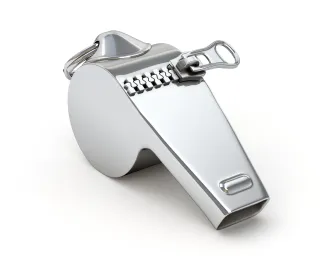A recent Louisiana Court of Appeal decision held that an oil and gas landman did not have a claim under the Louisiana environmental whistleblower statute, which protects employees from retaliation for reporting environmental law violations, since he was properly classified as an independent contractor by the defendant. Finding that Dan S. Collins, a certified professional landman (CPL), and his company, Dan S. Collins, CPL and Associates, Inc., were independent contractors and not entitled to whistleblower status, the Court of Appeal, First Circuit reversed a jury verdict and the trial court’s damages judgment awarding $750,000. Collins v. State of Louisiana, Through Dep't of Nat. Res., No. 2016 CA 1195 ( April 28, 2017).
Background
From 1997 to 2010, Collins and his company provided consulting services to the Louisiana Department of Natural Resources (DNR). Starting in 2007, Collins reported alleged environmental violations in the Atchafalaya Basin to DNR. When his consulting contract was not renewed for 2010, he filed suit against DNR under the Louisiana whistleblower statute, Louisiana Revised Statutes Section 30:2027, which provides for treble damages. Following years of intense litigation, on December 11, 2015, a jury found that the plaintiffs were employees of DNR who suffered retaliation from DNR. After a jury verdict against DNR, the trial court awarded $750,000 in damages, including triple damages under the statute. DNR appealed.
The Court of Appeal’s Decision
The First Circuit Louisiana Court of Appeal reversed the lower court’s decision, finding that the plaintiffs were “clearly independent contractors and not DNR employees.” Judge J. Michael McDonald found the following factors determinative:
[W]ork for DNR was performed by [Collins] and his corporation. Mr. Collins testified that he considered himself to be a contractor. Between 1997 and 2009, the corporation did work for other clients besides DNR . . . The corporation itself was acknowledged to be an employer in the contracts . . . All of the contracts were for specific time periods, with start and cessation dates. The plaintiffs were responsible for all taxes on payments received from DNR. The corporation was issued 1099 tax forms rather than W-2 tax forms. The contracts required the corporation to carry liability and workers' compensation insurance . . . [T]he corporation submitted monthly invoices, accompanied by progress reports, to DNR in order to receive payment. No vacation, sick leave, or retirement benefits accrued. The contracts required the corporation to provide the necessary personnel, materials, services, and facilities to perform the work. None of the contracts were terminated early, all expired of their own accord.
The Takeaway
Properly classifying a worker as an independent contractor can often be a difficult task. There are different tests under several federal and state laws, and the court decisions dealing with similar classifications of contractors are often inconsistent. Each case will turn on the individual circumstances of the relationship between the contracting entity and the independent contractor. The more factors that support the fact that the contractor is truly in business for her or himself, the better the chance of prevailing in the context of a government audit or lawsuit. This decision is good news for Louisiana-based entities that contract with independent contractors that are similarly situated to the plaintiff in this case





 />i
/>i
